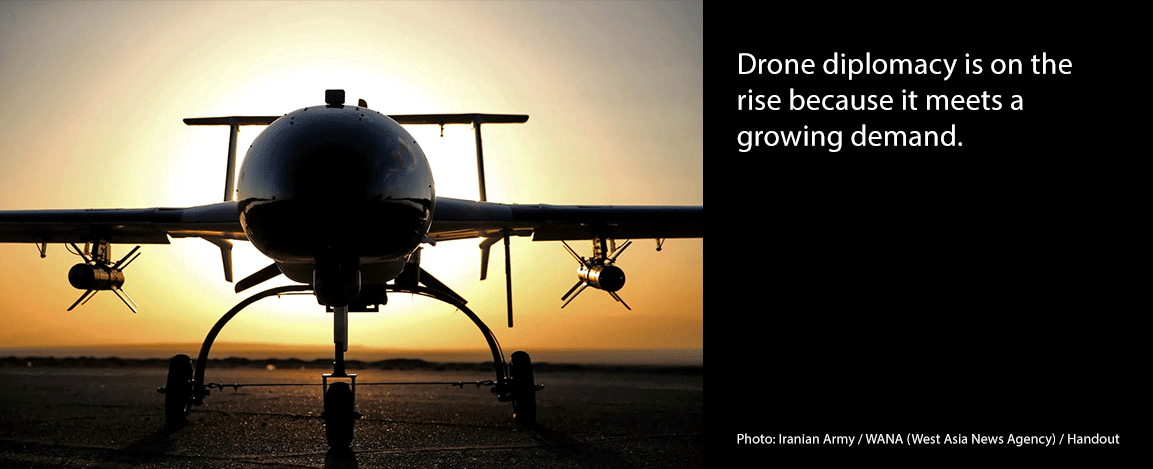Assistant Professor of Political Science Erik Lin-Greenberg argues that drone exports have become a new diplomatic tool. This piece was originally published here in Foreign Affairs. An excerpt is featured below.
Iranian-built drones now routinely puncture the skies over Kyiv. Elsewhere in Ukraine, Turkish- and American-manufactured drones help Ukrainian forces target Russian troops. These operations demonstrate the growing role of remote-controlled weapons in battle. The conflict also showcases how drone exports have increasingly become an instrument of diplomacy.
With drone use on the rise, states have capitalized on drone exports to increase their global clout. To be sure, this is part of an established trend: governments have long leveraged arms exports as a diplomatic tool. Beyond filling state coffers and defraying research and development costs, arms sales help states advance their foreign policy agendas. Selling or donating weapons to like-minded partners can be used to extract concessions, exert influence, counter rivals, and strengthen military ties. A new era of arms trade is emerging, in which new exporters such as Iran and Turkey are displacing traditional weapons suppliers and are using drone exports to extend influence beyond their borders. These exports threaten Washington’s influence and the security of its partners. To keep ahead, U.S. policymakers should help allies build drone programs while developing approaches to counter the threat of rival drones.
Read the full piece here.




